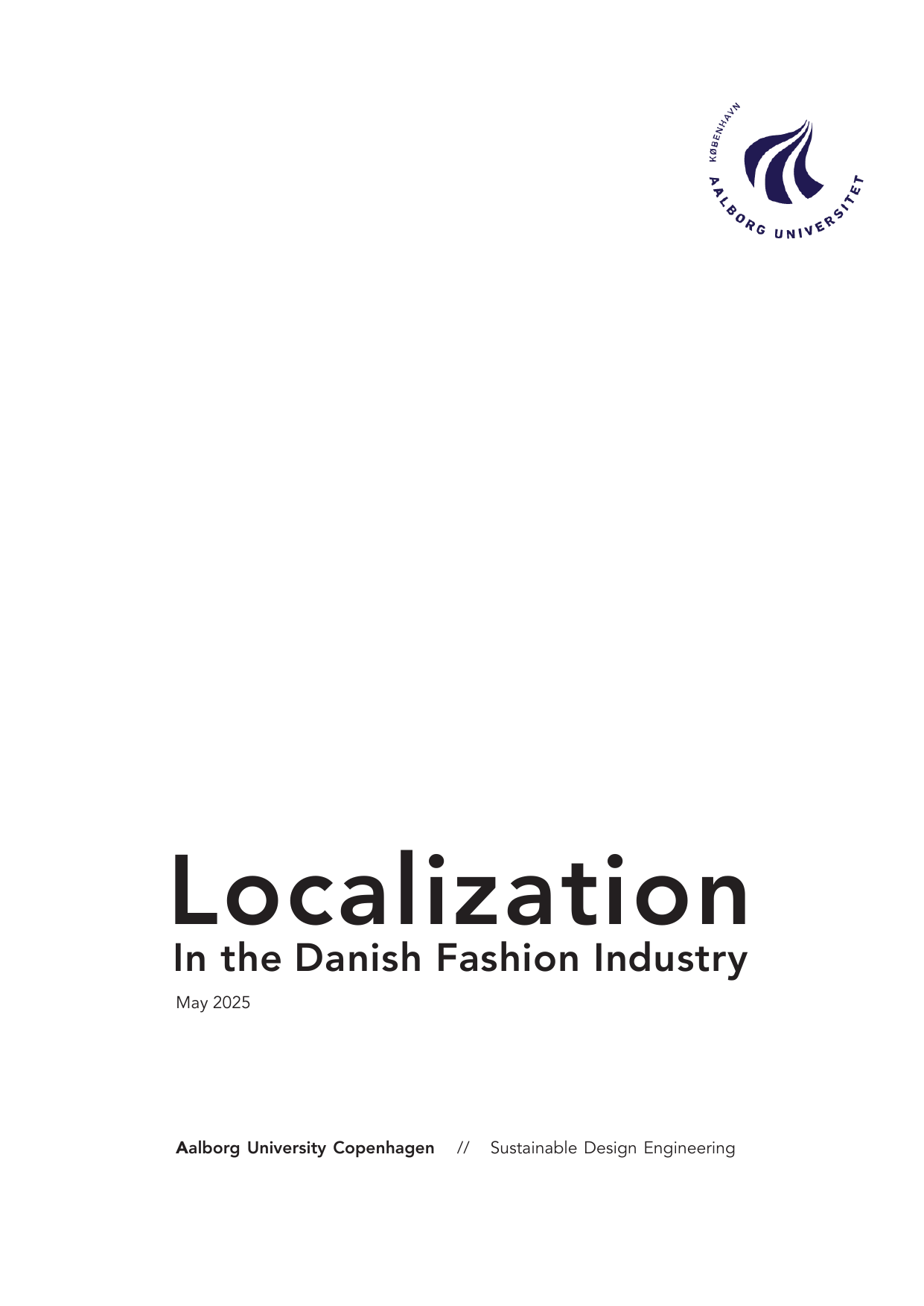
Localization in the Danish fashion industry
Author
Term
4. Term
Education
Publication year
2025
Submitted on
2025-05-27
Abstract
This thesis examines how Danish fashion SMEs can transition to local production by 2030 while maintaining economic sustainability, as outlined in the national roadmap vision for a more circular textile industry. Despite over a thousand firms registered under garment manufacturing codes, local production remains a niche, hindered by decades of offshoring, lack of skilled labour, limited access to specialized infrastructure, and dominant global supply chains. However, local production practices provide advantages, such as reduced lead times, lower emissions, and opportunities for collaboration. This research employs a mixed-methods approach to identify key barriers and opportunities, highlighting the necessity for coordinated efforts in infrastructure, education, policy, and collaboration. It adds to the existing literature by affirming that local production represents a significant structural shift that requires long-term commitment. It also highlights the ethical complexities associated with reshoring and underscores the need for socially inclusive strategies during the transition. Recommendations for stakeholders include a five-step framework to guide collaborative ecosystem building, policy support, skills development, and customer engagement, alongside a proposed digital platform to bridge information gaps and promote sustainable fashion practices in production and consumption in Denmark.
Documents
